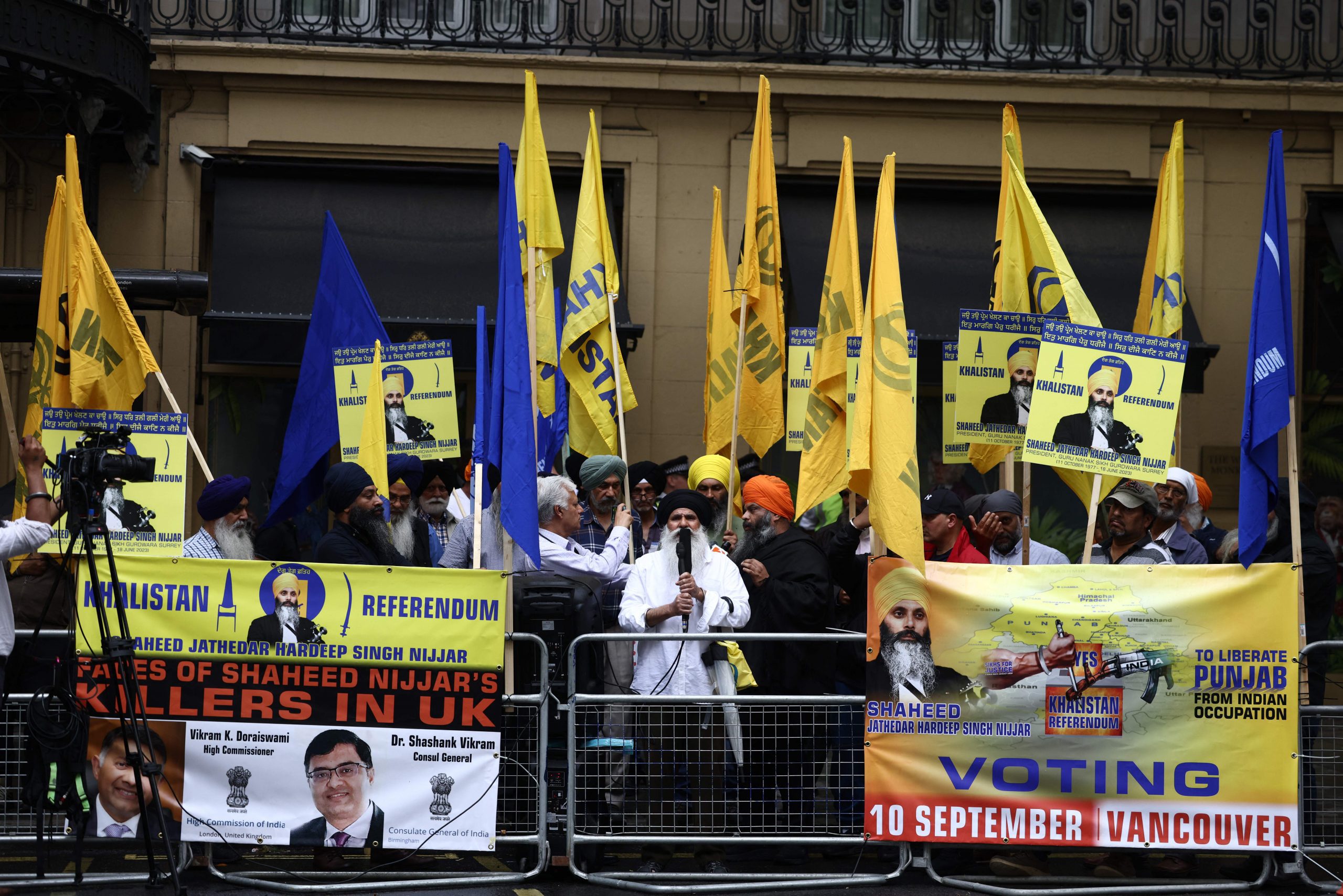- Friday, May 09, 2025
Questions have been raised about a sudden death in Birmingham after Canada links India to murder of Sikh activist Hardeep Singh Nijjar in British Columbia

By: Kimberly Rodrigues
The family of Avtar Singh Khanda, a 35-year-old Sikh activist who died in a Birmingham hospital this summer, is seeking a formal inquest into his death from the chief coroner for England and Wales.
This request, made in collaboration with the Sikh Federation UK, follows Canadian prime minister Justin Trudeau’s claim linking India to the murder of another Sikh activist, Hardeep Singh Nijjar, in British Columbia.
Both Nijjar and Khanda were associated with the outlawed Khalistan movement in India.
Khanda, who fell ill suddenly and was admitted to a Birmingham hospital, passed away on June 15. His cause of death, acute myeloid leukaemia, a blood cancer, was determined by a post-mortem examination, The Guardian reported.
Nijjar, aged 45, was killed three days later, on June 18, in a shooting outside his place of worship in Canada.
The Sikh Federation UK has expressed concerns about the lack of security advice provided by British authorities to high-profile individuals or to gurdwaras, the Sikh places of worship.
The call for an inquest, led by barrister Michael Polak announced at a press conference in London on Monday (2) urges the chief coroner for England and Wales to conduct an inquiry into Khanda’s death and assess whether the activist’s right to life was properly protected, given the public threats against him in India.
Sikhs plan to protest Nijjar’s murder and call for transparency regarding the UK’s stance on Indian-government targeting of activists.
Polak, a specialist in human rights cases has disclosed that Khanda had been labelled as “enemy No 1” in media coverage following an investigation in April by Indian intelligence services.
The inquiry was linked to a violent March protest outside the Indian mission in London, during which an Indian flag was removed, and certain security guards were reportedly injured.
Polak has emphasised the need for an investigation into Khanda’s death due to the threats against him, even though India denies involvement.
On the other hand, the administration led by Indian prime minister Narendra Modi has faced severe backlash from human rights advocates for endorsing authoritarian strategies. A recent report by Human Rights Watch has revealed heightened attempts by authorities to suppress activists and journalists.
According to the report, politically motivated criminal charges were utilised to imprison individuals who criticised the government or exposed government abuses.
However, Shamsher Singh, a close friend of Khanda, said that media narratives in India depicting Khanda as the mastermind behind the protest were false. He also refuted claims suggesting Khanda’s arrest or charges in the UK.
But Polak has alleged that British law enforcement should have recognised the potential danger Khanda was in.
Additionally, there remain unresolved inquiries concerning the days preceding Khanda’s death. His advocates and family members have asserted that they have not been provided with the medical records they requested, nor any evidence supporting the leukemia diagnosis.
Furthermore, Khanda’s mother, unable to attend the funeral due to an alleged visa denial by the Home Office, has expressed her belief that he was poisoned.
In an official statement, West Midlands police asserted that they conducted a comprehensive examination of Khanda’s death and determined there were “no suspicious circumstances.”
However, Shamsher Singh contested this description, stating there was no clarity on the type of review conducted by the police or the nature of the investigation.
Polak acknowledged that he could not definitively claim India was responsible for Khanda’s death but argued that the situation warranted a thorough investigation.
Meanwhile, in a shocking case of “institutional racism” in the UK, nurses have allegedly fastened a Sikh patient’s beard with plastic gloves, leaving him in his own urine. Additionally, they provided him with food that he couldn’t consume due to religious reasons, a media report said.
Despite the man complaining about the discrimination in a note on his deathbed, the nurses were allowed to carry on working, The Independent newspaper reported last week, quoting from a dossier leaked to it from the Nursing and Midwifery Council (NMC), the UK’s nursing regulator, which outlines multiple counts of alleged racism against nursing staff and patients.
The council has launched an investigation into the newspaper’s revelations. A senior NMC whistleblower claims that the regulator has failed to address “institutional racism” in its ranks for 15 years, warning this has allowed NMC staff “to go unchecked” when “applying guidance inconsistently based on their own discriminatory views”, the report said.
No other details of the man or the hospital were given in the report.
Dabinderjit Singh, the chief adviser of the Sikh Federation UK has insisted that Khanda’s death should undergo a comprehensive investigation. He has urged for the release of any information related to the case that might have been gathered by the members of the Five Eyes intelligence alliance, including the US, Canada, UK, Australia, and New Zealand.
(With inputs from PTI)